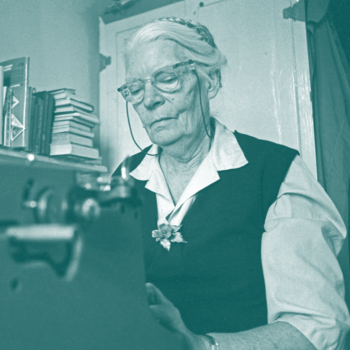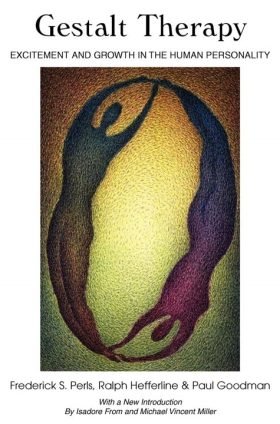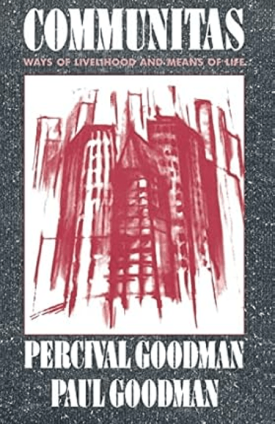Paul Goodman dared us to live as if people and planet mattered – refusing the machinery of control and reclaiming life through mutual aid, meaningful work, and local collaborative revitalization projects. His legacy fuels today’s eco-social movements to create self-managed spaces where care, creativity, and regeneration converge.

Paul Goodman’s multifaceted contributions to mid-20th-century thought continue to offer a profound and timely foundation for the evolution of Communitarian Union principles and eco-social practices. As a social critic, anarchist philosopher, educator, and psychotherapist, Goodman proposed ways of living together that were deeply attuned to the rhythms of locality, the dignity of meaningful work, and the liberating potential of collective psychosocial development.
His work remains essential for those of us committed to shaping communities that honor difference, decentralize power, and restore the capacity for shared stewardship of life and land.
Affirming the benefits Localism Over Centralization
Central to Goodman’s vision is the principle of local self-determination. In writings such as People or Personnel and The Community of Scholars, he critiqued bureaucratic overreach, arguing that large institutions—whether governmental, educational, or corporate—alienate individuals from the direct consequences of their actions and from one another.
For Goodman, genuine community arises when people are empowered to make decisions in the context of face-to-face relationships and shared place. His affirmation of localism was never nostalgic; rather, it was a call for participatory governance and decentralized social organization as the means through which people might recover autonomy and responsibility.
Communitarian Unions grounded in locality echo this sensibility. Goodman’s insistence on small-scale, self-managed structures aligns with our efforts to reweave neighborhood and regional ties, enabling people to provision, deliberate, and celebrate life together in ways that resist global extractivism and reassert accommodation for the life and liberty of people, animals and planet through cooperative practical love-in-action.
Paul Goodman’s contributed to the collaboratively authored Gestalt Therapy that reframes personal growth as a communal and ecological act—emphasizing awareness, responsibility, and lived connection with others and the environment. This group development approach challenges passive conformity, offering instead a dynamic practice of co-creating meaning and wholeness through shared presence and ethical action—principles central to communitarian eco-social transformation.
Grounding Psychosocial Practices for Eco-Social Learning
Paul Goodman’s background as a Gestalt therapist and educator gave him deep insight into the psychosocial foundations required for communal life. His advocacy for authentic dialogue, presence-centered development, and self-regulation through mutual awareness directly informs our use of Gestalt Group Development and other relational practices in Communitarian Union settings.
Goodman understood that lasting social transformation requires more than institutional reform – it demands inner transformation and interpersonal healing. For these reasons, eco-social learning environments are grounded not only in content but in method: we foster experiential, relational, and somatic modes of knowing, encouraging participants to re-inhabit their sense of agency, accountability, and contribution to deep support and flourishing of people, animals and planet – commonly known with communitarian circles as ‘Love-In-Action’.
His influence can be felt in the rhythms of our eco-social facilitation, where we privilege shared reflection, emergent insight, and emotional honesty as tools for regenerating deeply connected relationships. In this way, Goodman’s psychosocial insights support a fuller flowering of ethical community, where both individual difference and collective coherence are nurtured.
Cultivating Purposeful Belonging
& Collaborative Contribution
Throughout his writings—especially in Growing Up Absurd –Paul Goodman critiqued rigid social norms and challenged definitions of success that alienate individuals from meaningful work, community, and self-respect. He defended those marginalized by conformity-driven systems: young people, makers, teachers, and others who sought to live with integrity in a fractured world.
Rather than promoting boundless individualism, Goodman championed the restoration of healthy community life through practices that support genuine participation, mutual care, and responsibility. In this spirit, the Communitarian Unions foster purposeful belonging rooted in shared ethics, ecological awareness, and practical cooperation. Within the Eco-Social Learning Network, we make space for varied skills and life experience—experimental, practical, and embodied—so long as they contribute constructively to collective wellbeing and social-ecological renewal.
For Goodman, education, livelihood, governance, and friendship flourished not through permissiveness, but through deeply engaged relationships and meaningful forms of co-creation. Our local and regional Communitarian Unions carry forward this ethos, grounding action in communally affirmed values while remaining responsive to intergenerational, ecological, and place-based wisdoms.
Celebrating Authentic Artisan Crafting, Liberated Love & Participatory Co-contribution to the betterment of Society
Goodman consistently uplifted the value of manual skill, attentiveness to process, and mutual care. In Communitas (co-authored with his brother Percival Goodman), he envisioned urban forms and social arrangements that nurtured work with purpose, public space for conviviality, and educational structures rooted in the needs of real people, not abstract policy frameworks.
These values find deep resonance with communitarian union Right Livelihood Workshops, which frame work not as employment under compulsion, but as a form of shared creativity, ecological attunement, and ethical responsibility. Goodman’s emphasis on craft and care over commodification speaks directly to the eco-social orientation of Communitarian Unions. In our workshops, skill-building is inseparable from consciousness-building: we learn to repair tools and also to repair trust; we plant gardens and also the seeds of mutual respect.
Goodman’s commitment to co-responsibility—a shared obligation to sustain environments and relationships—undergirds our collective decision-making models, group project coordination, and participatory co-governance practices. He saw human flourishing not as individual triumph but as a shared accomplishment, born of collaboration, transparency, and presence.
Ways of Livelihood and Means of Life
Co-authored by Paul Goodman and his brother Percival Goodman, Communitas (1947) is a visionary exploration of how cities and communities can be designed to support meaningful, cooperative living. Rejecting both authoritarian planning and chaotic sprawl, the book presents practical proposals for integrating livelihood, education, and democratic participation into everyday life. It remains a foundational text for those seeking to reimagine society around human-scale values, ecological integration, and shared purpose.
Continuing Goodman’s Legacy through contributions to Eco-Social Renewal
Paul Goodman never proposed a fixed blueprint, yet he offered enduring principles for those of us committed to rebuilding social life on foundations of mutual respect, purposeful contribution, and local responsibility. His legacy urges us to restore what strengthens community, uphold the integrity of place-based relationships, and shape cooperative forms of living rooted in presence and practical engagement. For Communitarian Unions working to create cohesive, just, and life-affirming cultures, Goodman remains a vital forebear—his work a guiding force for cultivating freedom through shared responsibility, creative action, and ethical commitment to the common good.


